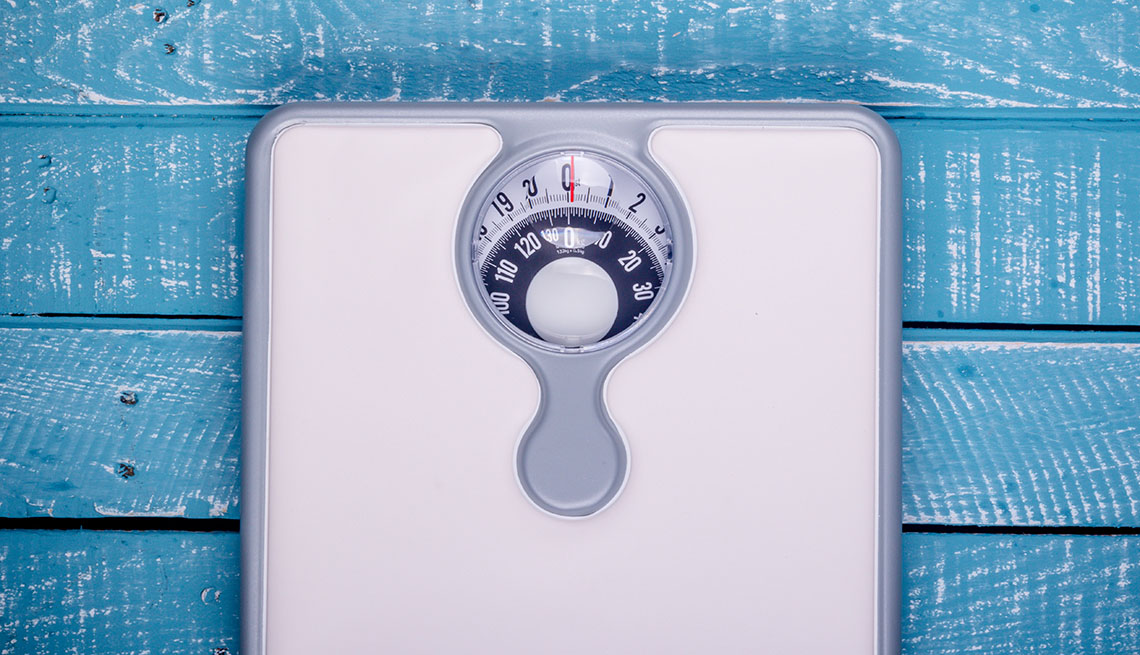
Packing extra pounds may keep you healthier after 80
- Select a language for the TTS:
- UK English Female
- UK English Male
- US English Female
- US English Male
- Australian Female
- Australian Male
- Language selected: (auto detect) - EN
Play all audios:

What's more, “if you're really thin, then you lose weight in your 80s, you are at risk of becoming frail,” says David Reuben, a specialist in geriatric internal medicine at UCLA
Medical Center in Santa Monica, Calif. (Frailty is a clinical syndrome in which three or more of the following criteria are present: unintentional weight loss of 10 pounds in a year;
self-reported exhaustion; weakness; slow walking speed; and low physical activity). If you're over 80 and have a BMI below 20, Reuben says, you're in the frailty zone. FOR EXPERT
TIPS TO HELP FEEL YOUR BEST, GET AARP’S MONTHLY HEALTH NEWSLETTER. But there may, in some cases, be a little nuance involved in defining what's too thin. Erin Michos, associate
professor of medicine at Johns Hopkins University School of Medicine, followed 6,000 patients over 13 years and found that it's important to look at the entire lifetime trajectory of
weight in order to assess incremental risk. For example, significant unintentional weight loss at later ages needs to be evaluated regardless of a person's starting weight. Body
composition is also important. Nicklas explains that the normal lifetime weight gain and loss trajectory is somewhat bell-shaped, but that this same gradual curve doesn't apply to the
loss and gain of muscle and fat. We naturally lose muscle continuously as we age. And gain fat. So our body composition as we age becomes worse, “and that isn't likely to shift back.”
In fact, as we start to lose weight in our 80s, muscle loss may even accelerate. That condition is called sarcopenia — the loss of muscle mass and muscle quality, coupled with a decrease in
bone density. And it puts people over 80 at increased risk of functional limitations, fractures from falls and disabilities. Women are at a higher risk of such disability than men, probably
because they have a lower percentage of muscle mass and higher percentage of body fat to begin with. That's why most scientists advise against putting people over 80 with normal or
slightly obese BMIs on calorie-restricted diets. They may suffer loss of muscle mass and bone density that they may not be able to restore. “This is a big driver of age-associated
disability,” says Douglas Seals, a professor in the Department of Integrative Physiology at the University of Colorado. Many scientists are studying how the older old age body synthesizes
protein, and the best way for those over 80 to maximize protein intake to minimize muscle loss. But, Seals says, there are no ready answers yet. The best prescription we now have to preserve
muscle mass in older adults, Seals adds, is to eat at least three meals a day that provide 30 grams of protein each, and to do two or three weekly sessions of resistance training that taxes
all the large muscle groups. “That might be a circuit-based resistance training program where the person does 10 to 12 repetitions per set, over two or three sets.” Beyond that, experts
advise walking to maintain mobility.
